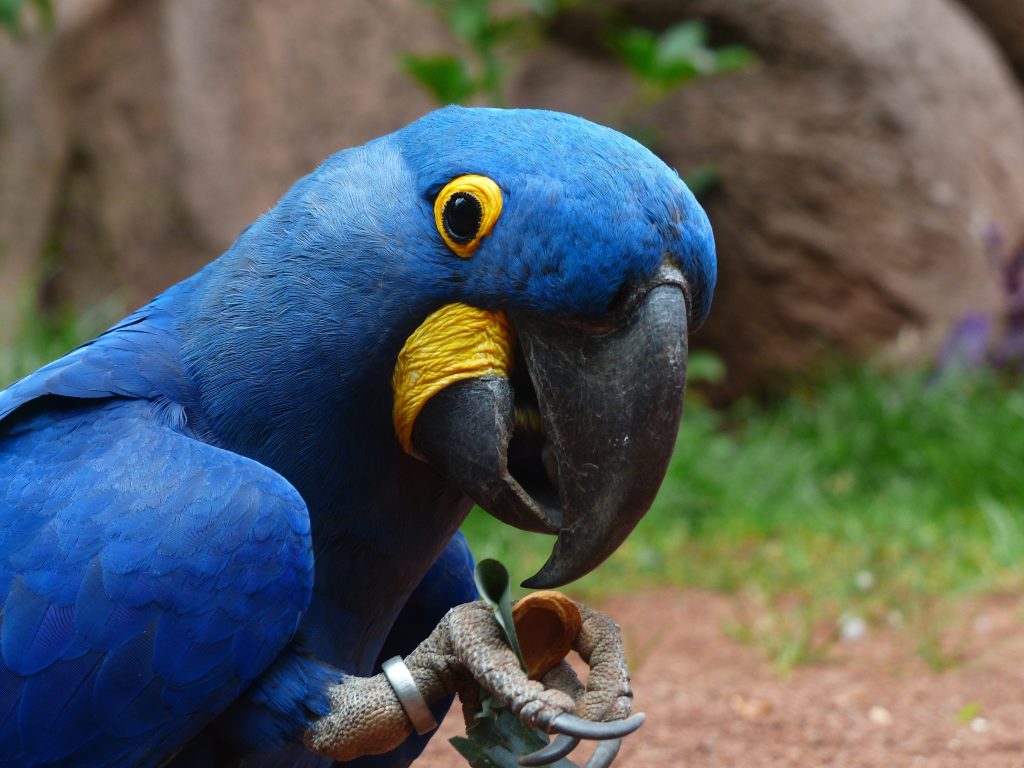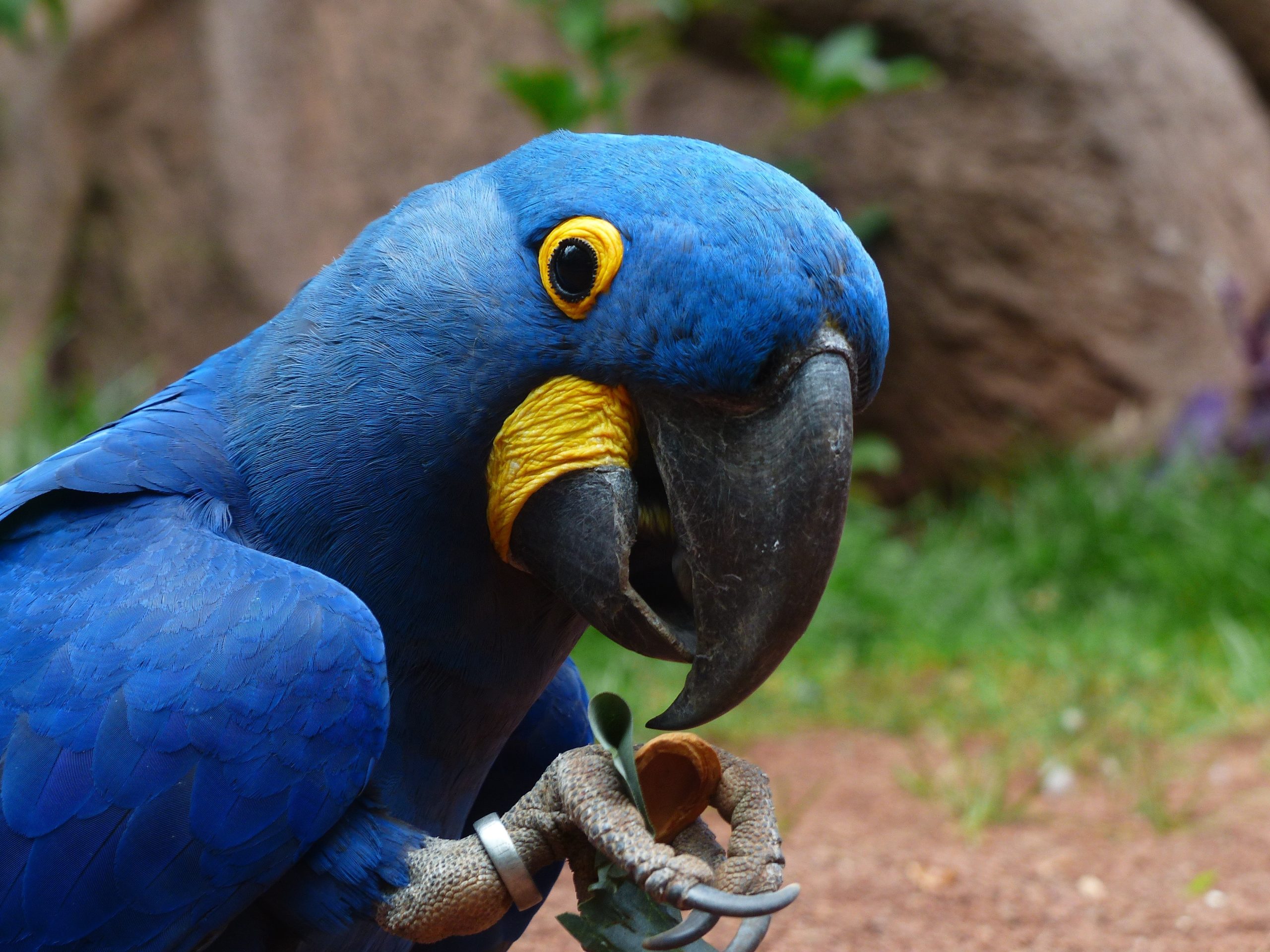8 Simple Steps To Keeping Your Pet Birds In Top Condition
8 Steps to Keeping Your Pets in Top Condition, the ultimate guide is for bird owners that want their feathered friend’s life to be happy and healthy. This blog post will teach you easy-to follow steps to meet the needs of your pet bird. These tips, which range from mental stimulation to proper nutrition, will keep your bird in top shape. These simple steps are a great way to maintain your bird’s health, regardless of whether you’re an experienced bird owner or newbie.

Understanding the Basics of Pet Bird Care
It is a wonderful experience to take care of your pet bird. It is important to understand the basics of bird care in order to keep your feathered companion happy and healthy. Keep in mind these important points:
Choosing the Right Bird Cage
When bringing a bird home, the first thing to do is choose the cage. The cage must be big enough to allow your bird to flap its wings and move comfortably. The cage should be made from bird-safe material and with the appropriate spacing between bars to prevent your pet bird from getting injured or escaping. Add perches, swings, and toys to the cage to keep your bird stimulated.
Providing the Proper Diet
For your pet’s health, a balanced diet is vital. It’s vital to understand that different bird species require different diets. Fresh fruits, vegetables and pellets are all important components of a healthy diet. You should not feed your bird any human food that is fatty, sweet, or salty. These foods can lead to health issues.
Offering Clean Water
Your bird should always have access to clean, fresh water. To prevent contamination and bacterial growth, change the water daily and clean the bowl. You can offer your bird water in a separate bowl for them to bathe, as many birds like to keep their hygiene by bathing.
Ensuring Good Hygiene
It is important to keep your bird’s cage clean and the environment free of disease and infection. Cleaning the cage, accessories and bedding with bird-safe disinfectants is important. Replace the bedding and litter when necessary. Trim your bird’s beaks and nails regularly to avoid injury and overgrowth.
Keeping Your Pet Bird active and entertained
It is essential to keep your bird entertained and active in order to ensure its health. Bored birds can become depressed, stressed or even sick. Here are a few tips to keep your feathered companion happy and healthy.
Toys, Games and Activities
Birds are intelligent animals and require mental stimulation to stay engaged. To keep birds entertained, provide them with games and toys. You can choose from a variety of toys, ranging from simple ones like mirrors and bells to more complicated toys such as puzzle feeders and swings.
Rotate toys frequently to avoid boredom. Make your own toys using items such as cardboard boxes, popsicle stick, and paper towel rolls. Make sure that toys are not dangerous and that they do not contain any small parts that could be swallowed.
Allowing Social Interaction
Birds are very social and love to interact with their owners as well as other birds. Spending daily time with your pet bird can keep it entertained. Sing to your bird or teach it tricks.
Provide enough space for your birds to interact. Before introducing the birds, make sure they get along. Birds who are not compatible with each other can be aggressive towards one another.
Monitor Your Pet Bird’s Health
It is your responsibility as a pet owner to maintain the health of your bird. It is important to have regular checkups with an Avian Vet in order to detect potential health problems early. Here are a few signs to watch out for.
Avian Vets recommend regular check-ups
Birds also require regular checkups by a veterinarian who is specialized in avian medicine. Even if your bird seems healthy, these check-ups need to be scheduled at least one time a year. The vet will check your bird’s weight, health and behavior during the examination. If necessary, they may recommend further tests. You can provide your bird with the best possible care by detecting potential health problems early.
Watch out for these Signs of Disease
You should monitor your bird closely for signs of illness. Changes in appetite, weight, lethargy and breathing problems are all common signs. It is vital to get your bird to the veterinarian as soon as you see any of these symptoms. Delaying treatment may lead to serious health problems in the future.
It is also important to give your bird a stimulating and healthy environment. Included in this is a healthy diet, lots of exercise, and socialization, either with other birds or you. Follow these simple steps to ensure your bird is healthy and happy.
How to create a safe environment for your pet bird
It is your responsibility as a bird owner to ensure that your feathered companion feels comfortable and safe. Here are two steps you can take to make sure your bird has a safe and healthy environment.
Achieving a comfortable temperature
Birds are very sensitive to temperature fluctuations, so it is important to maintain a comfortable and consistent environment. Most pet birds prefer temperatures between 65 and 80degF. Keep your bird’s cage far away from windows, doors or drafty areas. You can monitor the temperature in the room with a thermometer. If necessary, you can use an air conditioner or space heater to regulate the temperature.
How to Protect Your Pet Bird From Dangers
Birds can be curious, and this curiosity can lead them to dangerous situations. Bird-proofing your home is essential. Keep your bird cage away from hazardous items like chemicals, electrical cords and small objects which can be eaten. Make sure that there are no windows or doors open where your bird could escape or get trapped. Make sure that your other pets are not dangerous to your bird. Supervise any interactions.
To create a safe home for your feathered companion, it is important to maintain a comfortable temperature. These steps will help you keep your pet bird healthy and happy at home.
Conclusion
It is easy to keep your bird in good condition. Follow these eight easy steps to ensure your feathered friend remains healthy, happy and active. Don’t forget to give your birds a healthy diet, fresh water and a clean environment. Exercise and playtime is also essential for their well-being. It’s also important to monitor their health and behavior, and seek professional assistance if needed. You can have your pet bird for many years with a little care and effort. Happy birdkeeping!
FAQ:
You want your bird to be healthy and happy. You may still have questions about how to best care for your feathered companion. You can find answers to some of the most frequently asked questions.
What should I give my bird to eat?
You should feed your bird a wide variety of food, such as fruits, vegetables and grains. Avoid giving your bird avocados, chocolate, coffee, or alcohol as they can be toxic. Be sure to clean the bird’s food and water bowls regularly to prevent bacteria growth.
How often should I clean the cage of my bird?
Clean your bird’s cage every day, since birds are messy and can produce a lot waste. Replace any soiled bedding or paper, clean the toys and perches with a bird safe cleaner and replace food and water dishes. Do a deep cleaning of the cage once a week. This includes scrubbing down the bars, bottom tray and using a bird-safe disinfectant.
How often should I bring my bird to the veterinarian?
Avian vets recommend that birds have an annual examination. Do not hesitate to make an appointment if your bird shows any signs of illness or changes in behavior. As birds are prey, they tend to hide any signs of illness. It is therefore important to get medical help as soon as you can.
How can I entertain my bird?
Birds are intelligent, social creatures who require mental stimulation as well as social interaction. Rotate the placement of toys and perches in different sizes and textures to keep your bird interested. Interact with your bird through games, songs, and talking.
How can I stop my bird from escaping the cage?
Birds can be curious and skilled escape artists. Secure the cage door with clips and latches, and cover it at night to avoid night terrors and escape attempts. Close all windows and doors when your bird leaves its cage.
Can I train my pet bird?
Yes! Birds can be trained to perform a wide range of tricks and behaviors. Positive reinforcement techniques such as praise and treats can be used to encourage good behaviour. To successfully train your bird, you need to be consistent and patient.
What should I do when my bird bites?
Birds bite for many reasons including territoriality, fear and aggression. Avoid reacting in anger or fear if your bird bites. This can reinforce this behavior. Remove your hand slowly and direct your attention towards a treat or toy. If biting is a persistent problem, consult an expert in avian behaviour.
Keep in mind that caring for birds requires attention to details and dedication. Follow these simple steps to keep your feathered companion healthy and happy.

